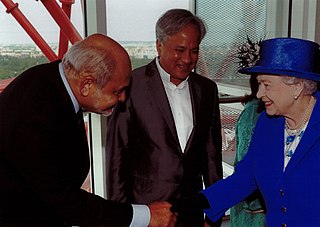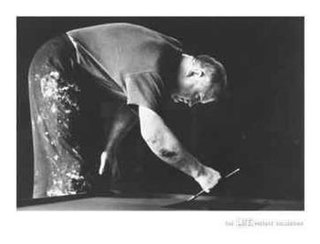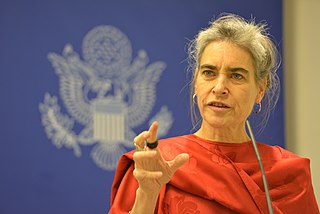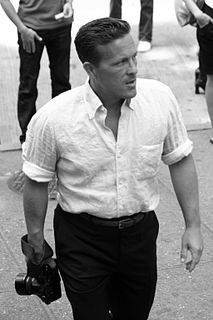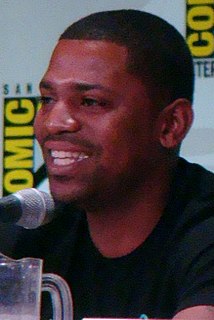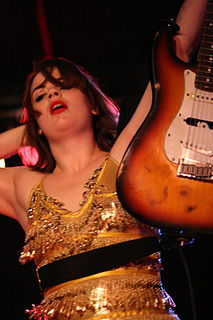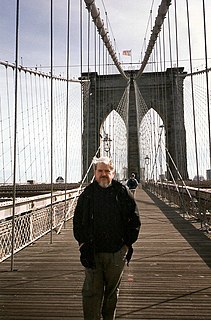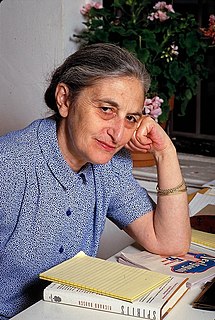A Quote by Nicolas Cage
Well, good science fiction is intelligent. It asks big questions that are on people's minds. It's not impossible. It has some sort of root in the abstract. So automatically you're getting closer to potentially divine sources of interest because it is abstract. It's one of the only ways that a film actor can express himself in the abstract and have audiences still go along for the ride. They don't contend it. They accept it, that they're going to go places that are a bit more of the imagination, a bit more out there, and that's more and more where I like to dance.
Quote Topics
Abstract
Accept
Actor
Along
Along For The Ride
Asks
Audiences
Automatically
Because
Big
Big Questions
Bit
Closer
Contend
Dance
Divine
Express
Fiction
Film
Getting
Go
Going
Good
Good Science
Himself
Imagination
Impossible
Intelligent
Interest
Like
Minds
More
More And More
Only
Out
People
Places
Potentially
Questions
Ride
Root
Science
Science Fiction
Some
Sort
Sources
Still
Ways
Well
Related Quotes
The one object of fifty years of abstract art is to present art-as-art and as nothing else, to make it into the one thing it is only, separating and defining it more and more, making it purer and emptier, more absolute and more exclusive - non-objective, non-representational, non-figurative, non-imagist, non-expressionist, non-subjective. the only and one way to say what abstract art or art-as-art is, is to say what it is not.
Corruption is a fact of life in America as in Afganistan, but as American citizens, if we are white, we tend to experience it as an opportunity cost. I live in Washington, DC, where the city council is notoriously corrupt. But how do I experience that? Maybe in streets that are not as well paved as they could be, maybe in a bridge that costs a lot more money than it should have. That's a little bit abstract - shocking, of course - but still abstract.
I love going to the runway shows. It's not so much for me a shopping trip as it is the appreciation of the craft of these design geniuses who come up with beautiful color combinations and beautiful proportion suggestions and these kind of ideas, so I look at the runway shows in very different ways, just kind of a romantic artistic interpretation of how they would like to see fashion going forward, but for me it's much more abstract. The runway shows are much more abstract than you know what ends up on people is much more real to me.
Being producer you're still going to have to sell somebody who's going to give you the money on the idea and everything like that. But it does give you a little bit more control if you're thinking in that creative process; it gives you more control to tell the story you want to tell rather than sort of just reading a script that somebody else wrote and says, "Yes, please, you can hire me for this job." So it's a little bit more hands-on, a little bit more closer to the heart.
Life holds many, many, many mysteries, abstract things we all think about. In a film when things get abstract, some people don't appreciate that and they want to leave the theater. Others love to dream, get lost, try to figure things out. I'm one of those people. I like a film, a story that holds concrete things but also abstractions. So when ideas come along that have those things, I'm falling in love and going to work.
Even dramatically how you position some person, the depth, the existence [in 3D] is different than a flat image even though by itself it has depth, we create the illusion of depth. For example, some of the shots I have to stay closer to the actor because it's a young actor, I like it closer for some of the shots. I watch 2D scenes next to the camera, then when I go back to my station and watch it in 3D I have to go back and reduce his acting, he has to shrink a little bit because he peeks out more.
Film, for me, is in two stages. One is when I write the script more or less on my own - that's the nice bit. And then comes for me the unpleasant bit when they all go off, 100 people - actors and camera people and film and sound - and I stay away. When they go into the editing room, I come in again, and that's the bit I like.


